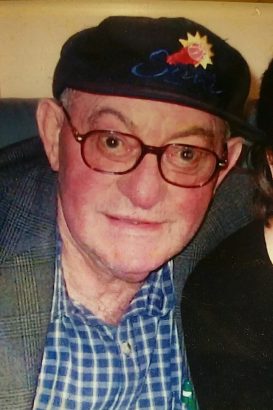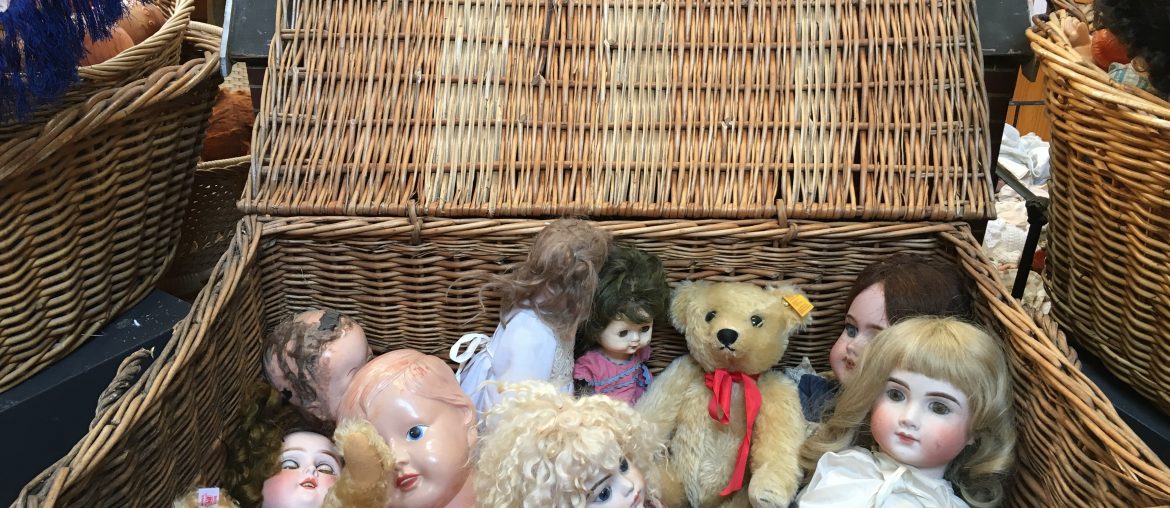I am 46 and the only child of a holocaust survivor dad, who was 48 when I was born, and a mum who was 37 when I was born. These days those ages for the birth of a first child are not completely unusual but I felt very unusual – always the only one with the older/old parents.
My mother passed away suddenly 3 weeks before the birth of my oldest daughter. I look back at that time and say that I inherited two children within a matter of a month.
Unbeknownst to me my dad already had the early stages of dementia. While my mother had hinted that he was forgetting things, in her typical style, she never discussed her fears with me directly. This left me unprepared as the primary carer for two generations. I was cooking for dad, looking after his emotional needs and increasingly managing his life, his finances and his appointments while dealing with sleep deprivation, looking after two small kids, holding down a job and trying to maintain a relationship with my husband.
My dad was a good man who never really came out of the concentration camp. When my mum died he became virtually completely socially isolated. He was not interested in trying what I suggested and each day I would watch his world shrink as activities fell away. I think he had undiagnosed and untreated depression which became worse as he got older. As his dementia progressed, he became unable to manage his medications, his diabetes etc. This all became my responsibility. He also started misplacing money and accusing me of stealing it. The call at midnight screaming blue murder at me is still very hard to accept from a man who loved me dearly.
I lost a dangerous amount of weight during this time. Well-meaning people told me how fabulous I looked. I would respond with – stress is a fabulous way to lose weight. People did not know how to respond.
It was not all bad. In the beginning he did whatever he could to help me. Before he stopped driving, he would do shopping for me, hang up washing for me and other little chores. This gave him purpose and a sense he was needed, but as his dementia progressed these tasks became harder for him to do for himself, yet alone for me.
I started to put carers and help in place for him. However, this was a moving feast. Every time I thought the level of care was ok, his health would change, and I needed to rethink what was needed. My trips to the hospital emergency became more regular to the point that where I said my dad’s surname they would say – you have been here before – to which I would reply – “Just give me my frequent flyer card”.
Things deteriorated significantly when he stopped driving. However, I could not allow him risk other people as well as himself. This is when I fully assumed the role of his carer.
I was determined to keep my dad at home as that is what I knew he wanted.
When I look back, I allowed him to be at home for too long to the detriment of everyone. With each hospital stay I could see the time was coming that he would not be able to stay at home for much longer. I could not afford 24-hour care. This was heartbreaking at the time, but when the decision was taken out of my hands by the hospital saying to me that he could not go home without 24-hour care the relief was palpable, although tinged with a huge amount of Jewish guilt. This was eased by a Case Manager who had assisted me through this journey saying to me that I had done the absolute best I could within the limits of the resources available to me.
Once my father settled into care I started to eat again and make more rational decisions. My role changed to managing his care, rather than being his carer. I got to enjoy the time I would spend with him and saw his joy when my kids would visit. He just enjoyed watching them play and his happiness made me happy. I was also determined to make the visits for my kids a positive experience. I put toys and books for them in his room. I had treats there and always helped myself to the icy poles in the kitchen as a treat for them.
I also wanted this to be an opportunity to teach my kids that growing old is normal and being around elderly people can be fun. Some people thought I was crazy to expose my kids to unwell people. I completely disagreed and ensured my kids would visit my dad regularly and that they wanted to visit Zaida.
The staff said I was a very strong advocate for my dad. I don’t know if that was their way of saying that I was a pain in their behind, but my father’s care was a priority and it needed to be done well. I chose to be present, to be seen to staff and make sure everyone at the facility knew that my family member’s care was my number one priority.
My father’s illness progressed and he regressed back to mainly speaking Yiddish, but did still understand English. I am not sure he knew exactly who I was. I think he thought I was my mum. I really did not want confirmation that I was no longer his daughter, so I did not directly ask him who he thought I was. I used to say to people that asked about my father that he was no longer my dad, but he still was my father. This was my coping mechanism.
I made the decision to take time off work a few months before he passed away to spend more time with him. I know how privileged I was to be able to do this. I got to see him every day and be around.
I am grateful for my husband, my kids and my friends. My husband just did whatever needed to be done with the kids so I could support my dad. I am privileged to be part of a community and to have some very loyal and supportive friends who would look after my kids at the drop of a hat. There are a couple who held me up. I know that not everyone has that, and I know how fortunate I am.
Looking after two generations at the same time is complicated (understatement of the century) and as we have had kids older this may become the norm for the next generation. Everyone has adifferent relationship with their parent and will have a different journey. The only advice I can offer is to ask lots of questions about supports available to caring for the elderly, having regard to the financial and emotional resources available to you.
Becoming the parent to my parent, while the hardest thing I did, was also my greatest privilege.



Comments are closed.